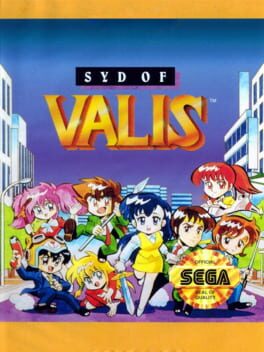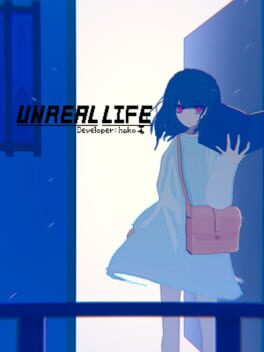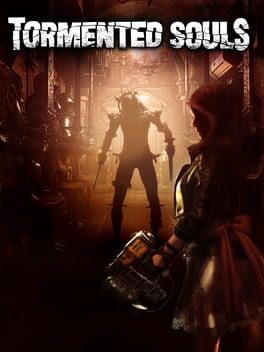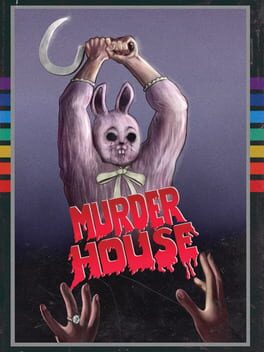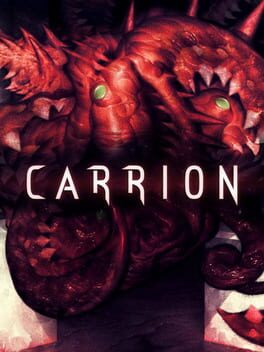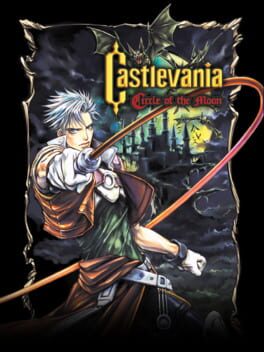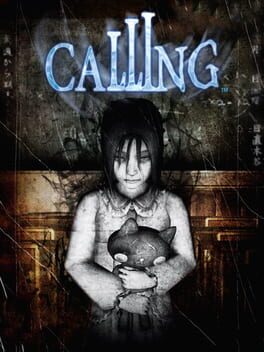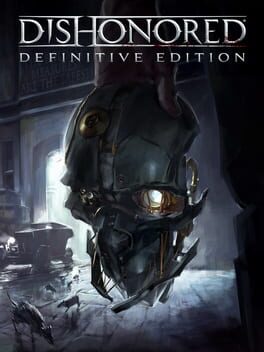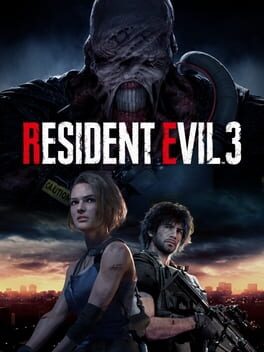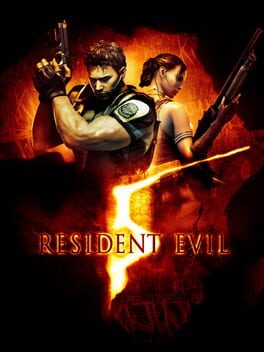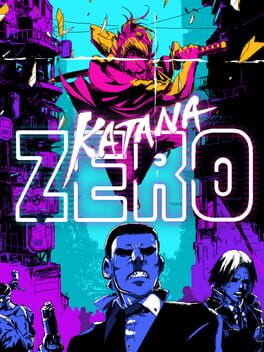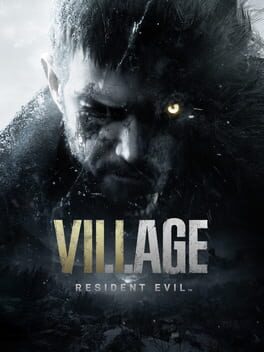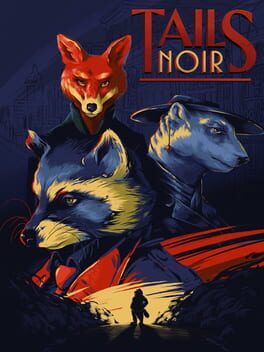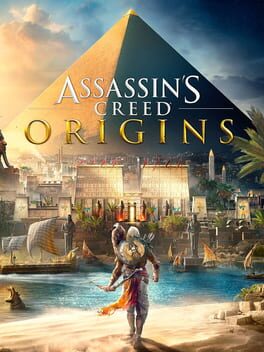nurvuss
1992
2020
2021
2020
2020
2009
2020
This review contains spoilers
Paradise Killer is an immediately familiar experience: every bit of it can be recognised from elsewhere. It is a collage in video game form, borrowing liberally from Grasshopper's Kill the Past series (cheekily commodified in-game as the refreshing beer "Kill the Thirst") and psychopop murder mystery DanganRonpa, stylised in pastel vaporwave aesthetics: a genre wholly dependent on duplication. Barry "Epoch" Topping's city pop/yacht jazz-inspired soundtrack immediately echoes the YouTube algorithms of those of us ruined by Mariya Takeuchi and Toshiki Kadomatsu, though it is original and sample-free.
One might see these numerous references, homages, and borrowings and accuse Paradise Killer of unoriginality, but the borrowings are the point: Paradise Killer is the Ur-hauntological adventure game, with each of its disparate parts key to its whole.
Beyond the limits of reality exists the Island Sequence: a pocket dimension ruled over by a cadre of immortal narcissists called The Syndicate. Ostensibly created as worship to the Syndicates' many eldritch Gods, it's essentially an eternal vacation home. Beachfront living and luxurious cocktails for the immortals, while the Citizens—regular humans who've been trafficked across dimensions—are forced into gruelling slave labour to keep the Islands running. It's always a temporary arrangement; every thousand or so years, the Island falls prey to demon invasion, requiring the creation of a new Island, the migration of the Syndicate, and the slaughter of the Citizens to appease the Gods' wrath.
Paradise Killer opens on Sequence 24 as it begins to wind down, as all Sequences do. Preparations are being made for Perfect 25, an idealised "Forever Island" supposedly immune to demonic influence. Just as migration begins, tragedy strikes Paradise: the High Council have been slaughtered in cold blood, throwing 24 into lockdown and disarray. Investigator Lady Love Dies, previously exiled for 8000 years after falling prey to demonic seduction, is brought out of retirement by the Syndicate's judicial body to solve the case. The player, as Lady Love Dies, scours Sequence 24 for clues, meeting the larger-than-life Syndicate members, and looking for holes to poke in their testimonies when it's time to hold court.
Sequence 24 is a dreamlike hodgepodge of spatial design: a tropical beach resort punctuated by realistic Japanese danchi-style public housing, as well as surreal pyramids, temples, and ziggurats. The landscape is bathed in different shades of neon, as modern architecture combines with Doric pillars and ancient sculpture. Any screenshot is a potential vaporwave album cover. It's also a profoundly lonely experience; each of its characters are spread far apart from each other, occupying their own luxurious "Generation Me" living quarters. Lady Love Dies wanders across the island alone, music fading in and out the closer the player is to a radio tower. What results is an empty shell of a city, a hyper-stylized monument to hedonistic ambition and hubris.
The vaporwave influence is far more than a stylistic choice: a simultaneous celebration of a mythologised recent past, and a critique of the continued failures of capitalism, Paradise Killer's style is key to its themes. It is no coincidence that vaporwave is preoccupied with 1980s Japan, the height of the bubble economy before it burst in 1991, resulting in the economic downturn of Lost Decade—which, as of 2021, has continued as The Lost 30 Years. Like a wistful snapshot of an 80s metropolis, Sequence 24 is a wonderpark; a collection of non-places. As the late cultural theorist Mark Fisher would write in his 2012 essay "What is Hauntology?", "[non-places'] resemble one another more than they resemble the particular spaces in which they are located, and [their] ominous proliferation is the most visible sign of the implacable spread of capitalist globalization. The disappearance of space goes alongside the disappearance of time: there are non-times as well as non-places." Paradise Killer, similarly, is wholly unstuck from time: the Syndicate have successfully dragged out their late 20th century summer vacation for thousands of years, but it is not enough: perfection must be endless.
Echoing any economic bubble, every Island Sequence has been a profound failure, setting up Perfect 25 to be a fiction within the game's own fiction. The Syndicate gaze foolishly to a past that never existed, believing they're looking to a bright future. Paradise's late capitalism has lasted thousands of years, and it's set to continue brutally and unabated—always somebody else's fault, the self-absorbed death drive of the Syndicate will march on.
Paradise Killer is a visually enticing adventure; the surface-level beauty of Sequence 24 eroded with each new allusion to the utter bleakness that is the prerequisite to its existence. A world of multicoloured plastic shit, the vacation spot that's a “““nice place””” but you wouldn't want to live there—unfortunately, thanks to neoliberalism, we already do.
Hey, at least you can pick your favourite product.
One might see these numerous references, homages, and borrowings and accuse Paradise Killer of unoriginality, but the borrowings are the point: Paradise Killer is the Ur-hauntological adventure game, with each of its disparate parts key to its whole.
Beyond the limits of reality exists the Island Sequence: a pocket dimension ruled over by a cadre of immortal narcissists called The Syndicate. Ostensibly created as worship to the Syndicates' many eldritch Gods, it's essentially an eternal vacation home. Beachfront living and luxurious cocktails for the immortals, while the Citizens—regular humans who've been trafficked across dimensions—are forced into gruelling slave labour to keep the Islands running. It's always a temporary arrangement; every thousand or so years, the Island falls prey to demon invasion, requiring the creation of a new Island, the migration of the Syndicate, and the slaughter of the Citizens to appease the Gods' wrath.
Paradise Killer opens on Sequence 24 as it begins to wind down, as all Sequences do. Preparations are being made for Perfect 25, an idealised "Forever Island" supposedly immune to demonic influence. Just as migration begins, tragedy strikes Paradise: the High Council have been slaughtered in cold blood, throwing 24 into lockdown and disarray. Investigator Lady Love Dies, previously exiled for 8000 years after falling prey to demonic seduction, is brought out of retirement by the Syndicate's judicial body to solve the case. The player, as Lady Love Dies, scours Sequence 24 for clues, meeting the larger-than-life Syndicate members, and looking for holes to poke in their testimonies when it's time to hold court.
Sequence 24 is a dreamlike hodgepodge of spatial design: a tropical beach resort punctuated by realistic Japanese danchi-style public housing, as well as surreal pyramids, temples, and ziggurats. The landscape is bathed in different shades of neon, as modern architecture combines with Doric pillars and ancient sculpture. Any screenshot is a potential vaporwave album cover. It's also a profoundly lonely experience; each of its characters are spread far apart from each other, occupying their own luxurious "Generation Me" living quarters. Lady Love Dies wanders across the island alone, music fading in and out the closer the player is to a radio tower. What results is an empty shell of a city, a hyper-stylized monument to hedonistic ambition and hubris.
The vaporwave influence is far more than a stylistic choice: a simultaneous celebration of a mythologised recent past, and a critique of the continued failures of capitalism, Paradise Killer's style is key to its themes. It is no coincidence that vaporwave is preoccupied with 1980s Japan, the height of the bubble economy before it burst in 1991, resulting in the economic downturn of Lost Decade—which, as of 2021, has continued as The Lost 30 Years. Like a wistful snapshot of an 80s metropolis, Sequence 24 is a wonderpark; a collection of non-places. As the late cultural theorist Mark Fisher would write in his 2012 essay "What is Hauntology?", "[non-places'] resemble one another more than they resemble the particular spaces in which they are located, and [their] ominous proliferation is the most visible sign of the implacable spread of capitalist globalization. The disappearance of space goes alongside the disappearance of time: there are non-times as well as non-places." Paradise Killer, similarly, is wholly unstuck from time: the Syndicate have successfully dragged out their late 20th century summer vacation for thousands of years, but it is not enough: perfection must be endless.
Echoing any economic bubble, every Island Sequence has been a profound failure, setting up Perfect 25 to be a fiction within the game's own fiction. The Syndicate gaze foolishly to a past that never existed, believing they're looking to a bright future. Paradise's late capitalism has lasted thousands of years, and it's set to continue brutally and unabated—always somebody else's fault, the self-absorbed death drive of the Syndicate will march on.
Paradise Killer is a visually enticing adventure; the surface-level beauty of Sequence 24 eroded with each new allusion to the utter bleakness that is the prerequisite to its existence. A world of multicoloured plastic shit, the vacation spot that's a “““nice place””” but you wouldn't want to live there—unfortunately, thanks to neoliberalism, we already do.
Hey, at least you can pick your favourite product.
2020
2009
2019
Folks were talking about Village from the very first teaser trailer: there's vampires now? Werewolves?? Witches??? Longtime fans were skeptical to see the series break its own rules by including the entire Universal Monsters cadre, but skepticism soon turned to horniness when Capcom revealed Lady Dimetrescu, the internet's Big Vampire Mommy GF ("Fans, we've heard your cries: so we've released her exact shoe size").
The period between this reveal and Village's release was an exhausting time to be on Vidya Twitter. Thankfully, Village is a worthy successor to Resident Evil 7, just as gross and silly as its immediate predecessor. Ethan Winters is as Wonder Bread™ a protagonist as ever, but the supporting cast more than makes up for it with a rogue's gallery who wouldn't be out of place in one of the stronger Metal Gear Solid titles. Each of the Four Lords' territories sees a horror genre change that keeps things fresh and amusing with equal parts creeping dread and laugh-out-loud moments.
Like RE 7, the back quarter isn't quite as strong as the rest of the game, but Resident Evil has never been a series that knew how to stick the landing. This is less a condemnation of Village as it is acknowledgement of Just How Freakin Good the rest of the game is: Village manages to be simultaneously self-aware and deft-handed, an accomplishment for any game, let alone a storied, over-the-top series like Resident Evil.
The period between this reveal and Village's release was an exhausting time to be on Vidya Twitter. Thankfully, Village is a worthy successor to Resident Evil 7, just as gross and silly as its immediate predecessor. Ethan Winters is as Wonder Bread™ a protagonist as ever, but the supporting cast more than makes up for it with a rogue's gallery who wouldn't be out of place in one of the stronger Metal Gear Solid titles. Each of the Four Lords' territories sees a horror genre change that keeps things fresh and amusing with equal parts creeping dread and laugh-out-loud moments.
Like RE 7, the back quarter isn't quite as strong as the rest of the game, but Resident Evil has never been a series that knew how to stick the landing. This is less a condemnation of Village as it is acknowledgement of Just How Freakin Good the rest of the game is: Village manages to be simultaneously self-aware and deft-handed, an accomplishment for any game, let alone a storied, over-the-top series like Resident Evil.
2021
I don't want to be too hard on Backbone, the indie neo-noir detective adventure starring a raccoon, but it really fumbled. A muddled allegory using animal species as a class divide, which doesn't work when class is eschewed to portray certain races as inherently evil. Some shoehorned #girlboss stuff at the end. Maybe their next game will be better.
Picked it up a few years ago and didn't really give it that much of a chance; finally put the time in during the January doldrums and I had a really great time. Great story, too! AC's soft reboot spread across 1st century Egypt is the freshest the series has felt in years, though it's also started a trend of each of these games being way bigger than the last.
